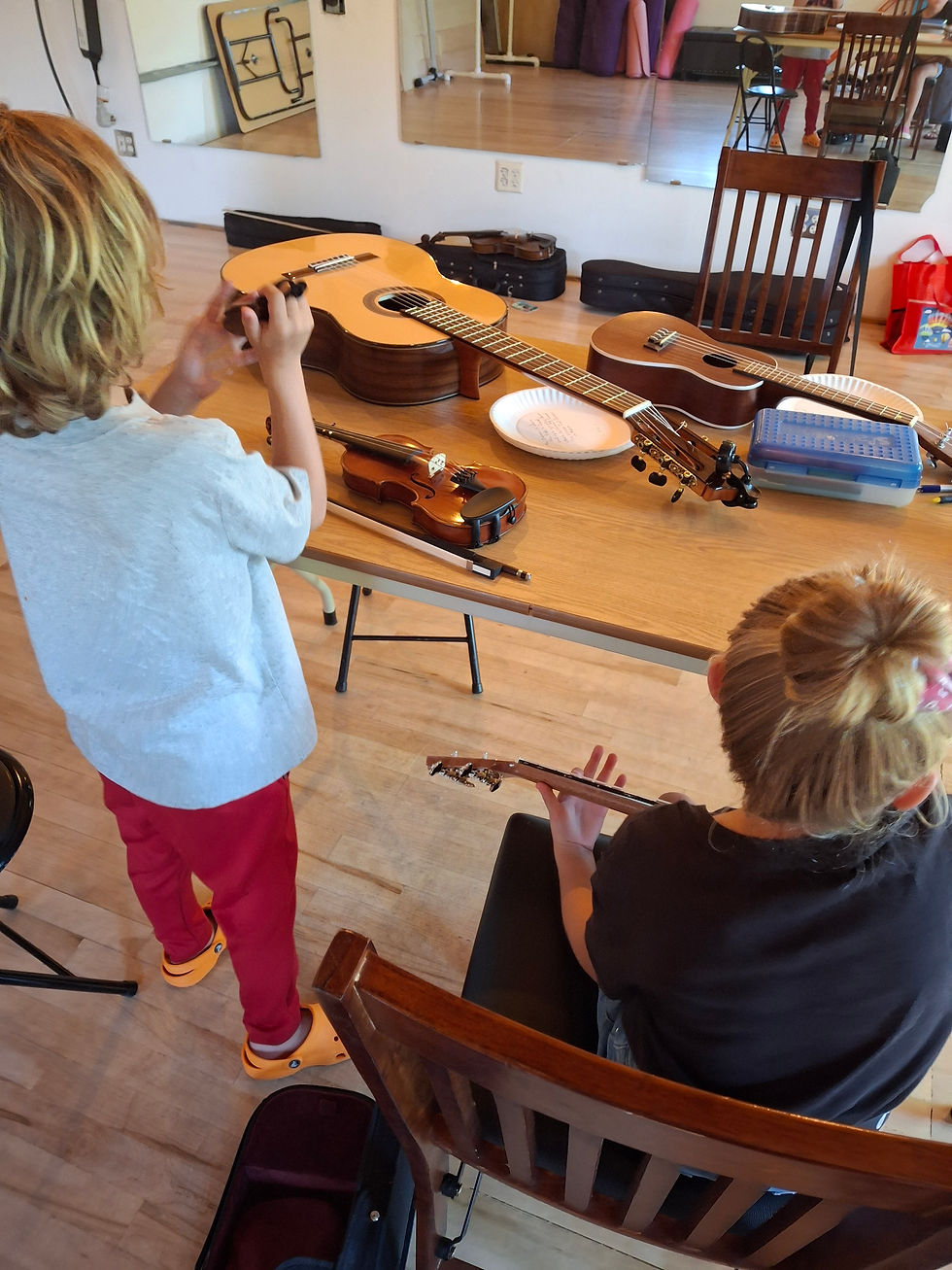The Seven Questions Series: Dr. Emily Matula - Danny Long
- fmguitar7
- May 19, 2023
- 3 min read
Updated: Dec 23, 2023
First, please write a short bio in the space below, answering the following questions: What is your name? What is your title? How did you learn about One Voice 4 Change? What project did you work on (either as a partner, a teacher, a mentor, or a student)? And what is your favorite dessert?
Dr. Emily E. Matula is currently at NASA Johnson Space Center in Houston, TX working as an EVA flight controller/instructor. I am a part of the Martian Greenhouse project (student teams across the world develop a design for a Martian Greenhouse to sustain astronaut nutrition during a surface stay) as the mentor lead and mentor. I enjoy anything with fruit in it (cakes, cookies, pies).

The Questionnaire
1. Has working with One Voice 4 Change (OV4C) benefitted you? If so, how?
I have thoroughly enjoyed my time working with OV4C because it’s given me the opportunity to interface with folks outside of my work community and gain a new perspective on space topics. The creativity of the students for these different projects is also incredible and feeding their passions is very fulfilling.
2. What excited you about working with OV4C?
Expanding participation in STEM activities to locations that may not have those opportunities in their day-to-day studies. We make sure students are aware of what is going on in the space industry, how it relates to their everyday lives, and how a career in space could be possible.
3. What was the most powerful moment you experienced while working with OV4C? It can be social, educational, emotional, etc.
I was impressed by the dedication and how self-driven these students are. The first year, I had a student that was out for a few weeks because they were sick. I remember emailing the student and asking if they needed help from their group to get their sections done while they recovered. They were passionate that they could get the work done and that they wanted to complete their assignment. The diagrams and research presented by that student in our next meeting were incredible. They mentioned later that while they were sick, researching about space propulsion took their mind off their recovery and helped them feel better.
4. Many of the problems facing the world require people across the planet to work together, and yet working together seems just the kind of thing many people aren't willing to do. You had to collaborate with many people during your time with OV4C. What advice can you give on forming successful partnerships?
I believe most folks focus too much on how everyone is different and how that can be a detriment to the project, losing sight of how we all have a lot in common. First, an appreciation of how we are the same should be established. I love going around the room in our first meetings and talk about our favorite foods or holidays. Typically, we all quickly
appreciate how everyone loves holidays but how the celebrations can be different. From there, I point out that we are going to work on the same project with the same goal, but the way we approach the problem may be different. This usually helps form a bond and a sense of center for the group.
5. How should the world of education adapt to the demands of the moment?
Right now, our world needs quick, critical thinkers. While also relying on folks who can “connect the dots” and understand how technologies could be beneficial in different environments or applications. Encouraging students to be creative in quick bursts through timed design exercises can help “flex” their creative muscle, while prioritizing interaction with other students they may not otherwise interact with. I’m looking forward to trying to introduce this type of an activity in future Martian Greenhouse programs to get students from different schools thinking and communicating.
6. OV4C takes a project-based approach to education, whereby students learn by actively engaging in meaningful real-world projects. What, in your view, are some benefits to this approach?
Students feel accomplished when they come away with a tangible product, which is the end-goal of this project -producing a mockup or video representation of the greenhouse. The Martian Greenhouse project also tries to engage all types of learning through lectures, project reports, and student-built mockups. Communication is key in the workforce,
regardless of a student’s future career. This project-based approach also relies on communication with team members and allows students to practice those skills.
7. What do you hope the world will look like in fifty years?
I hope for mutual respect across all countries with less of a territorial focus on resources and boundaries. I also want a sustained presence on the Moon with at least one Martian human spaceflight mission accomplished.



Comments